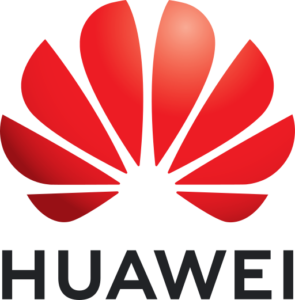 So, the Huawei saga rolls on. The executive arrested, the daughter of the CEO, will probably wind up released, as it’s been made clear this is a political arrest. (Trump has said so, and it’s over Iran sanctions. Breaking Iran sanctions is clearly political, and probably even the ethical thing to do in many cases.)
So, the Huawei saga rolls on. The executive arrested, the daughter of the CEO, will probably wind up released, as it’s been made clear this is a political arrest. (Trump has said so, and it’s over Iran sanctions. Breaking Iran sanctions is clearly political, and probably even the ethical thing to do in many cases.)
But something else is more important to note. Huawei genuinely has the most advanced net tech in the world. It’s that simple.
America no longer manufacturers telecom equipment – Cisco got out of the business several years ago – and Huawei’s two Scandinavian competitors are too little, too late, and too expensive…
the Shenzhen firm is spending $20 billion a year on R&D, about four times as much as either Ericsson or Nokia, its only important challengers in the telecommunications equipment market.
Huawei’s internal assessment holds that its technological lead in 5G mobile broadband is so wide that the competition has no effective chance of catching up. In late February, Huawei will introduce its Balong phone, with a chipset that can handle downloads ten times faster than the best 4G LTE speeds, while operating with 4G networks as well.
“China’s largest tech company makes high-quality networking gear that it sells to rural telecommunications operators for 20 percent to 30 percent less than its competitors do, says Joseph Franell, chief executive officer and general manager of Eastern Oregon Telecom in Hermiston…”
This is hopeless. It’s probably true that Huawei stole a lot of technology, especially in the 90s and the 2000’s. One of its victims was Nortel, Canada’s telecom giant, which makes me angry.
So what?
They have the technology. It’s cheaper and more advanced than anyone else’s and, hilariously, the US doesn’t even compete in this type of telecom equipment any more.
If this is a strategic matter, then the US has fallen down completely. If an industry is strategic, a country must make sure it, or a trusted ally, stays in the lead. Not only did the US not do that, but US policies from the 80s onwards effectively off-shored this sort of production and research, as a deliberate policy choice.
Now they cry?
5G is lost. If the US, or the US and its allies, want a shot at 6E they’d better figure out how to do industrial policy. That might, indeed, mean banning Huawei, but only if they’re willing to put up with worse, more expensive internet for a decade or so. (But then US and Canadian internet is already not nearly as good as the best.)
One of the key tenets of neoliberal economic policy is that it doesn’t matter where something is manufactured, or done. Let the cheapest domicile do it, and everyone will benefit.
This is bullshit, and always was. Making and designing new things is where economic strength, the good life and military power all come from.
Nations which forget this wind up in the dustbin. Free trade, as an ideology, is the deathknell of great powers, including Great Britain, and likely to include the US. It does work for smaller powers, and should be the default policy mode for all city states, but great powers are not small powers, let alone city states.
So, if the US wants to ban Huawei, it’d better figure out how it’s going to support Huawei’s competitors enough so that they at least catch up, or even consider making sure the US has its own telecom manufacturers. If it can’t do that, this is a band-aid on a wound.
(Oh, and there’s a reason the US, whose technology is used in most of the older telecom equipment, especially cables, thinks that China might use that to listen in. Mmmmm. What would that be?)
The results of the work I do, like this article, are free, but food isn’t, so if you value my work, please DONATE or SUBSCRIBE.
